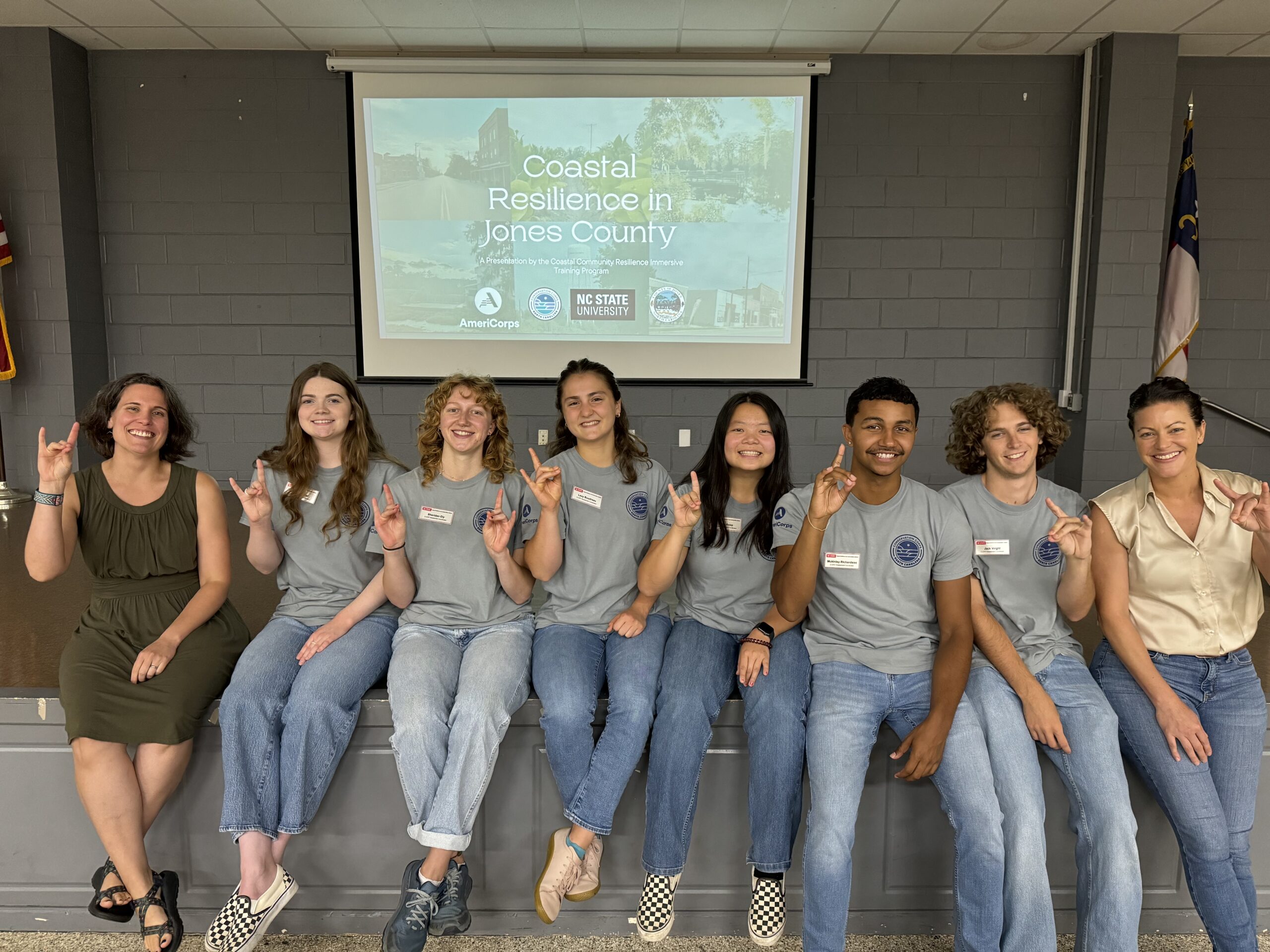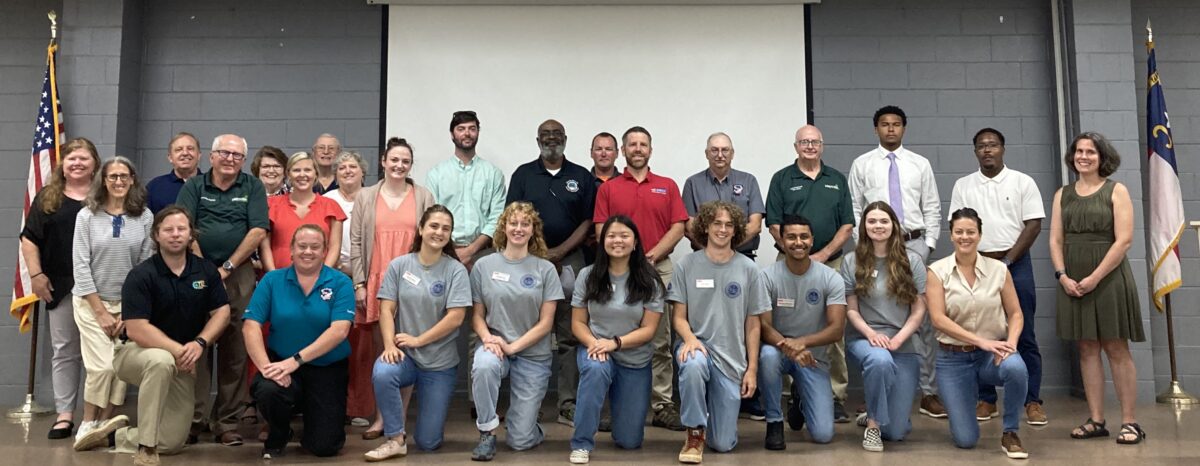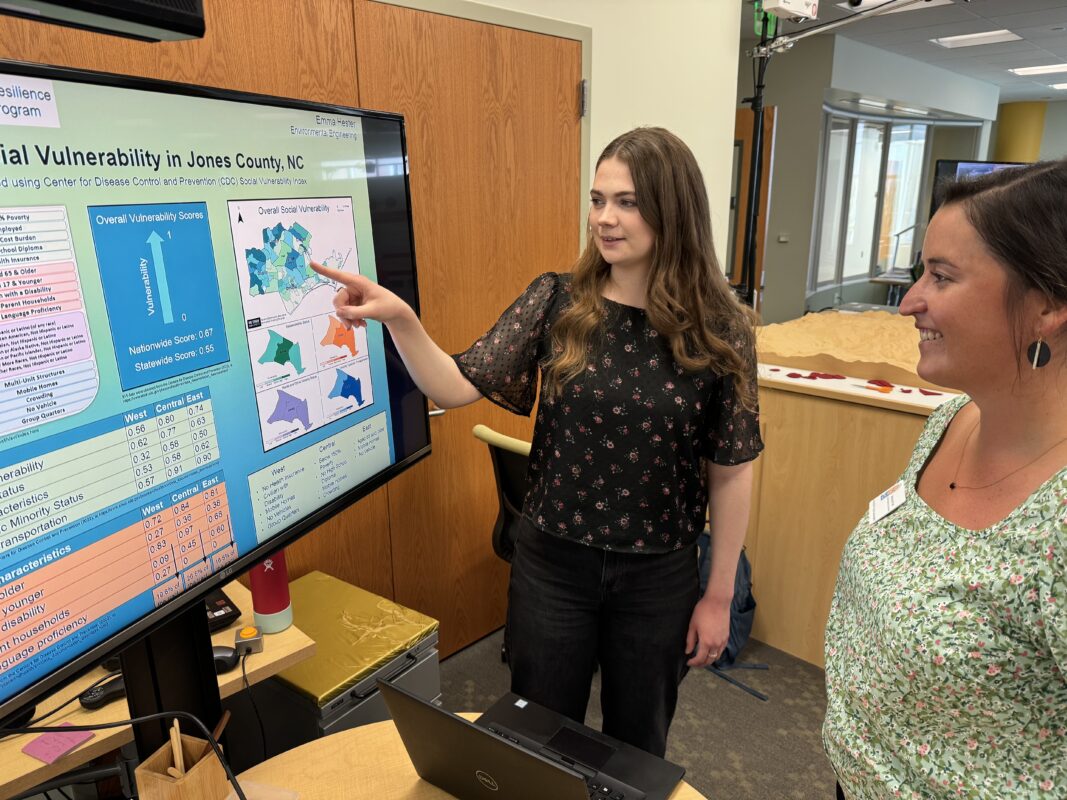Highlighting the First Year of the C-CRIT Program

The Coastal Community Resilience Immersive Training (C-CRIT) Program, a new collaboration between NC State’s Coastal Resilience and Sustainability Initiative (CRSI) and Conservation Corps North Carolina, successfully completed its first year on July 19, 2024. Supported by NC State’s Office of University Interdisciplinary Programs (OUIP) and the Kenan Institute for Engineering, Technology and Science (KIETS), this program trains six AmeriCorps members each year to serve as Assessment Coordinators. Their task is to create asset maps and vulnerability assessments for coastal communities that need help with these resources.

In its first year, the C-CRIT team worked with Jones County, North Carolina, located about 2 hours southeast of Raleigh. This community maintains significant natural and economic resources, but faces climate challenges like heavy rainfall and flooding. Over a 10-week period, the 2024 team applied their new knowledge of and skills in geospatial analysis and GIS software to assess the county’s vulnerabilities and assets.
Following the North Carolina Division of Coastal Management’s Resilient Coastal Communities Program framework, the C-CRIT team engaged with Jones County leaders and community members, mapped community assets, and analyzed vulnerabilities, with a focus on flooding. They prioritized key assets like schools, emergency services and productive lands.

Key achievements from the first year include:
- Risk and Vulnerability Assessment Report: a detailed document that gives Jones County essential information about its climate risks, with a special focus on flooding.
- Online Story Map: an interactive tool that presents the program’s findings
- Comprehensive Database: a database shared with Jones County partners that includes all the data used in the assessments, serving as a valuable resource for future planning (available upon request).
“Jones County is pleased with the Risk and Vulnerability Assessment that was developed by the C-CRIT team through the summer 2024 pilot program project. The C-CRIT team took a hands-on approach with the community, developing relationships with local leaders and stakeholders, to develop a product that can be used to enhance future applications and advocacy measures to secure funding related to risk and vulnerability resiliency.” – Kyle Smith, Jones County Manager
A significant outcome is the recognition of Jones County’s efforts to enhance resilience, such as moving buildings from flood-prone areas and upgrading infrastructure. The data and analysis from the C-CRIT team will be useful resources to help the county prioritize future investments in resilience.
Participating in the C-CRIT program, specifically partnering with Jones County, emphasized that coastal vulnerability is not only relevant in communities that directly border the coast, but also in communities further inland that are still susceptible to coastal hazards. – Emma Hester, 2024 C-CRIT Program Member
The C-CRIT program has helped me understand how decisions are made in a community, how counties are managed, how data is shared, used and presented in a meaningful way, and most importantly, how to work collaboratively. – Lexy Boudreau, 2024 C-CRIT Program Member
The opportunity to use skills I learned through the C-CRIT Program to create products that our partner community Jones County could use was very valuable. Seeing this real world experience was very insightful and rewarding to me as a student. – Rose Hopp, 2024 C-CRIT Program Member
The 2024 Assessment Coordinators were:
- Lexy Boudreau (Environmental Engineering major; Science Technology and Society major)
- Sheridan Ely (Engineering and Spanish double-major)
- Emma Hester (Environmental Engineering major)
- Roselyn Hopp (Industrial Engineering major; Environmental Science minor)
- Mckinley Richardson (Biological and Agricultural Engineering Technology major)
- Jack Voight (Environmental Engineering major; Film Studies minor)
The program was led by Dr. Rebecca Ward, C-CRIT Program Director and CRSI Postdoctoral Research Scholar, and Dr. Georgina Sanchez, C-CRIT Data Analytics Program Mentor and Research Scholar with the Center for Geospatial Analytics. The leadership team also included Dr. Erin Seekamp, Director of the Coastal Resilience and Sustainability Initiative, and Amanda Mueller, Director of the KIETS Climate Leaders Program. Many experts from within and outside NC State contributed to the program’s training and development.

We look forward to building on this foundation and helping more communities in North Carolina’s coast adapt to climate challenges.
- Categories: